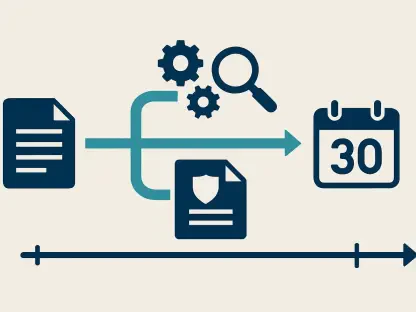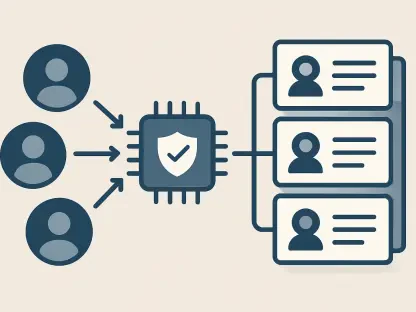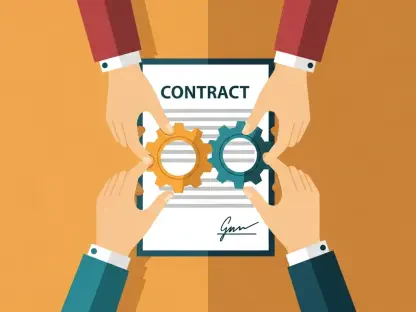Imagine relying on disability benefits as a lifeline during a medical crisis, only to face repeated denials and silence from your employer and insurers. This is the harsh reality for many employees, as highlighted by a high-profile lawsuit involving Andrea Clark, a former Boeing financial analyst. Her legal battle, filed in the U.S. District Court for the Northern District of Illinois, has sparked widespread discussion about corporate accountability and the complexities of disability benefits under the Employee Retirement Income Security Act (ERISA). This roundup gathers insights, opinions, and tips from various legal and industry perspectives to unpack the nuances of Clark’s case against Boeing, Hartford Life and Accident Insurance Company, and Alight Solutions. The aim is to shed light on systemic challenges and offer guidance for employees and employers navigating similar disputes.
Exploring the Legal Landscape: Diverse Views on Clark’s Case
Legal analysts across the board have noted that Clark’s allegations of wrongful denial of short-term and long-term disability benefits strike at the heart of employee rights. Many point to her severe medical conditions—ranging from paralysis to degenerative diseases—that have forced her out of her role since early 2024. Some legal observers emphasize that the medical evidence provided by her physicians, which confirmed total disability, should have been sufficient to trigger benefits, raising questions about the fairness of the evaluation process.
Others in the legal community focus on the procedural mishaps alleged in the complaint, such as the lack of response to appeals spanning several months into 2025. A segment of ERISA specialists argues that this case exemplifies a breach of fiduciary duty, particularly by Boeing and Hartford, as timely communication and transparent decision-making are mandated under federal regulations. However, a smaller group cautions that without full evidence from the defendants, it’s premature to assign blame, suggesting that administrative errors rather than intentional denial could be at play.
Industry voices also weigh in, with employee advocacy groups highlighting the emotional and financial toll on Clark, who lost her livelihood due to health issues beyond her control. They argue that her struggle reflects a broader pattern of corporations prioritizing cost-saving over employee welfare. This perspective contrasts with some corporate consultants who stress that multi-entity systems involving employers, insurers, and third-party administrators like Alight often lead to unintended delays, not necessarily malice.
Systemic Issues in Disability Claims: Opinions on Administration Flaws
Diving deeper into the administration of disability benefits, many HR professionals express concern over the fragmented systems Clark encountered. They note that her short-term disability claim, denied by Boeing and managed by Alight, faced roadblocks due to alleged insufficient evidence, despite her persistent appeals. A common opinion among these experts is that third-party administrators may wield too much unchecked influence over claim outcomes, potentially undermining employee trust in the process.
Legal scholars specializing in employment law offer a contrasting view, pointing out that ERISA’s strict guidelines are designed to protect employees but often falter in execution when communication breaks down across multiple stakeholders. They suggest that Clark’s experience—marked by a lack of response for over 150 days on her long-term disability claim with Hartford—illustrates a procedural maze that many workers are ill-equipped to navigate. This viewpoint calls for clearer accountability measures to ensure no claim falls through the cracks.
Meanwhile, disability rights advocates argue for a human-centered approach, emphasizing the personal devastation caused by such denials. They contend that cases like Clark’s, where medical hardship derails a career, demand not just legal remedies but also ethical reforms in how corporations handle benefits. Their stance pushes against more pragmatic opinions from insurance industry representatives who note that high volumes of claims can strain resources, sometimes leading to delays that appear as negligence to claimants.
Broader Implications: What Experts Say About ERISA and Corporate Responsibility
Turning to the wider implications of this lawsuit, many ERISA attorneys believe that the outcome could set a significant precedent for how disability disputes are handled nationwide. They argue that if Clark’s allegations of fiduciary breaches are substantiated, companies like Boeing might face increased scrutiny over their benefits administration practices. This perspective underscores the potential for legal rulings to drive policy changes that benefit millions of workers.
On the other hand, some business analysts caution against overgeneralizing from a single case, suggesting that while Clark’s situation is troubling, it may not reflect a universal problem. They point to industry-wide data showing that many disability claims are processed without issue, and stress that systemic flaws are often exaggerated in high-profile lawsuits. This more conservative take urges a balanced approach to reform, focusing on targeted improvements rather than sweeping overhauls.
Employee benefits consultants offer a practical angle, advocating for better training for administrators and streamlined processes to prevent the kind of delays Clark faced. Their insights align with a growing consensus that transparency in communication—between employers, insurers, and employees—is critical to avoiding disputes. This viewpoint highlights a proactive path forward, suggesting that preventive measures could mitigate the need for litigation in many cases.
Practical Tips for Employees and Employers: Navigating Disability Benefits
For employees facing similar challenges, legal advisors across various forums recommend meticulous documentation of all medical evidence and claim interactions. This includes keeping detailed records of doctors’ reports, treatment plans, and correspondence with employers or insurers. Such preparation can strengthen a case if denials occur, providing a clear trail of evidence to support appeals or legal action.
Another tip from employment law experts is to seek legal counsel early if a claim faces resistance. They note that understanding rights under ERISA and navigating appeal deadlines can be daunting without professional guidance. This advice is particularly relevant for workers who, like Clark, encounter prolonged silence or outright denials, ensuring they don’t miss critical windows for recourse.
For employers, HR specialists suggest implementing regular audits of benefits administration processes to identify potential bottlenecks. They also encourage fostering direct communication channels with employees to address concerns before they escalate into lawsuits. These actionable steps, echoed by many in the corporate advisory space, aim to rebuild trust and reduce the risk of legal battles over disability claims.
Reflecting on the Discussion: Next Steps for Stakeholders
Looking back on the insights gathered, it becomes clear that Andrea Clark’s legal fight against Boeing and its partners resonates deeply with legal, industry, and advocacy communities. The varied opinions underscore a shared concern over transparency and fairness in disability benefits administration. Differing views on whether systemic flaws or isolated errors are to blame reveal the complexity of reforming such systems.
Moving forward, stakeholders gain valuable direction from the practical tips shared, such as prioritizing documentation and early legal support for employees, alongside process audits for employers. A key takeaway is the urgent need for clearer accountability across all parties involved in benefits management. As these discussions continue, exploring additional resources on ERISA regulations and employee rights could further empower both workers and corporations to address these challenges collaboratively.









